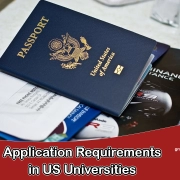Do and Don’ts for International Students Studying in USA 2024-2025
Estimated reading time: 19 minutes
Studying abroad presents a golden opportunity to immerse oneself in a vibrant new culture, forge connections with individuals from diverse backgrounds, and expand one’s horizons. However, adapting to unfamiliar customs and regulations, especially within the educational institution, can pose challenges. Every year, a multitude of students flock to the United States to pursue advanced academic pursuits. As international students embark on this transformative journey in the USA, navigating a new environment becomes paramount. To facilitate a smoother transition and enrich your experience, we’ve curated a list of essential dos and don’ts tailored for foreign students navigating the American academic landscape.
Dos for International Students in USA
1-Be prepared to Talk:
It is typical for a student to be expected to participate in class discussions and engage in conversation in an American university setting. International students used to a stricter, lecture-only environment may be surprised.
How can you help? You might want to get your questions and answers ready before class. Look for talking points in your readings, and be sure to be prepared to continue the conversation with insightful questions and responses. Your grade might be at stake!
2-Research properly for the Courses in USA:
International students can choose from a wide variety of courses in the USA. Check the course’s eligibility, requirements, and suitability before deciding whether to enroll. Numerous factors, including research facilities, employment prospects, and top-ranked US universities, determine the best courses to study in any given nation. Additionally, you should consider these elements before deciding on the course.
3- Be socially active
In the USA, participation in extracurricular activities is expected of all students. You might participate in extracurricular activities such as athletics or the arts or join professional or cultural organizations. Your story is more than just your grades; the other levels involve networking and being different. You should attend a college program in the United States because you want to network with other students. The people you will interact with to form relationships, start businesses, and rely on for referrals.
4-Do explore your surroundings
When you travel, be prepared to immerse yourself in the local culture and history. The best way for international students to use their breaks is to travel to well-known locations close by, even though there is no doubt about the quality of education in the USA. This will ensure they have fully utilized their time in the United States. One of the best opportunities of a lifetime to learn from the world outside of your classes is to study abroad. When you are studying, make sure to schedule some “must-see” attractions.

Don’ts for International Students for USA
1. Don’t forget to check for international students scholarships for you
Scholarships can help pay for your higher education if you’re an international student hoping to study in the United States. There are few scholarships available in the USA, regardless of whether you are a first-year student going on to graduate school or simply returning to college for a new year. Your study abroad in the USA will be more affordable if you successfully apply for scholarships.
2-Don’t’ be afraid to face new challenges
For many students, attending school in the United States is their first significant test of independence. As a result, it’s a fantastic chance to strengthen your capacity for independent decision-making and goal-setting. With the new challenges you will encounter daily, it will be crucial to possess maturity and confidence. Clubs, teams, and other extracurricular activities should be utilized because they can be just as important as the education you receive in classes.
3-Don’t forget the Documents
You need to handle your documents with extreme caution. They are required not only for university admission but also for visa application and post-arrival procedures in the United States. Thus, keeping them secure. Among the crucial documents are:
- identity card
- passport
- birth certificate
- proof of enrolment in your institute;
- proof of language ability
- previous degrees
- your plane tickets
- the printed reservation of your accommodation
4-Don’t assume that everyone’s experiences are the same
You might think twice about visiting the USA if a classmate tells you about their terrible experience there. Because each person is unique, your experience will be unique to you. Take into account the reasons why they disliked going there before you make any judgments. There could be a variety of causes for why it failed, including:
- They were homesick.
- The classes were harder than expected.
- They did not estimate the expenses properly, so they felt like they were missing out.
- They did not take studying abroad seriously.
- They never attempted to make friends.
5-Don’t Breach your visa conditions
You might think twice about visiting the USA if a classmate tells you about their terrible experience there. Because each person is unique, your experience will be unique to you. Take into account the reasons why they disliked going there before you make any judgments. There could be a variety of causes for why it failed, including:
We hope that these “dos” and “don’ts” for international students studying in the USA will make your trip easier. Numerous other students from various countries will be present. Be friendly with them. Despite the fact that they are recent immigrants. You can always get in touch with your institution and seek advice if you are experiencing a significant issue or problem.

Important Tips for International Students
For most students, the first week after arriving at their US university is the most difficult part of their entire study abroad experience. You will have to overcome homesickness and adjust to a new culture, language, and other things. Here are a few top suggestions for international students looking to learn how to survive in the USA as a student to make your journey a little easier.
1-Make a Budget for Your Life in the US
Depending on where you are attending school, your cost of living might be high. Here are some suggestions on how to create a budget as a college student for studying abroad in America. Planning ahead can help you cover these costs.
States in the US can have vastly different cost of living ranges. Ordinarily, urban living is more expensive than suburban or small-town living. The cost of living may change based on:
- Housing on campus or renting apartments off campus
- Meal plans, personal grocery shopping, or eating out
- Traveling by public transport or by car
- Entertainment, extracurriculars, and other personal spending habits
- Having a part-time job
The simplest way to arrange your spending is to divide it into essential and non-essential categories. You can get a quick idea of what to think about from the table below:
2-Develop Your Language Skills
Because of language barriers, moving to the US doesn’t have to be difficult. English-language courses are offered in many Shorelight programs to help you with both speaking and academic skills. Podcasts, TV shows, movies, and even online tutorials can all help you improve your English. The following is some of the best advice for international students who want to learn English:
- Obtain English instruction from US teachers, locals, or mentors — English language courses are offered at many universities, including Shorelight universities, to help you with your academic and speaking English as well as your grammar.
- Download an English podcast or language app — Use Duolingo or English-language podcasts like LearnEnglish from the British Council to learn the language. Transcripts for podcasts are frequently available, allowing you to listen and read along simultaneously.
- Changing the default language on your computer is arguably the simplest action to take. A great way to keep the language you want to learn in your mind every day and to learn new words that will soon become common in your daily life is to learn how to use technology in that language.
- Change up your friendship circle — Speaking with American students regularly, observing their speech patterns, and engaging in conversation with them are all excellent ways to develop your English.
- Read a book you are already familiar with; many best-selling titles have been translated into numerous languages. Look for an English translation of a book you have already read in your mother tongue. You should be able to understand the language even better because you are familiar with the story.
- Bring a dictionary with you. If you need to look up a word during a conversation or in class, a pocket dictionary can be very helpful.
3-Join a Society or Club
You can join a wide variety of student-run organizations and societies at universities. You can find a student society or club full of other students who share your interests, whether they are in debate, drama, music, sports, or another activity. Clubs and societies can also be a great way to make friends and settle into American culture.
Here are some reasons why foreign students studying in the US should join a club or society:
Explore your interests — Clubs can help you learn new things outside of the classroom and explore your interests. This can give you a welcome break from studying and help you feel more at home on campus.
Learn new hobbies — Hobbies can help you relax and build relationships with like-minded people. Joining a club or organization on campus allows you to explore different interests and find a hobby you enjoy.
Meet new people — Campus clubs and student organizations are made up of people with similar interests. You might make a new friend at an international student organization’s meeting. Friends and connections can improve your college experience: One of the best ways to integrate into American culture is to seek advice from other students.
Build your resume. You might not have much work experience in your industry when you first start looking for a job. Participating in clubs or organizations can demonstrate to potential employers that you have vital leadership, organization, and teamwork abilities. Even new opportunities may come your way, thanks to someone you meet!
Enhance your English — Speaking with club members provides you with regular opportunities to practice and enhance your English.
4-Immerse Yourself in the Culture
For most international students, it can be difficult to acclimate to American culture and learn about it. Dealing with culture shock is one of the most frequent difficulties, and while you’re adjusting to life in the US, you might miss home. This is typical: There are many ways you can prepare for your new cultural experiences because many international students experience culture shock.
Here are a few pro tips for international students on how to fully immerse themselves in the community:
-It can be simpler to make friends and avoid cultural misunderstandings if you are aware of the social norms in the US before you enroll in college.
-Be accepting of diversity and keep an open mind; the US is a melting pot of cultures. You can meet people from all walks of life, gain insight from their viewpoints, and discover new ideas if you keep an open mind.
-Visit restaurants and other nearby attractions — Getting out and exploring the many businesses nearby is one of the best ways to acclimate to US culture. Try out new cuisine, go to a park, engage in a novel activity, and explore all the US offers. You might feel more at ease as you get used to your surroundings!
5- Build a Strong Network of Support
The admissions office or international student office at your university can be a great source of assistance for international students in the US during your transition from your home country to the US. Participating in orientation at the start of your program is the best way to get used to life in the US and meet other new students.
Your new friends, academic advisors, and/or counselors will be able to provide you with additional forms of support. Many schools have counselors and therapists who are prepared to discuss ways you can lessen the stress of moving to a new country, adjusting to US classroom culture, and more. These professionals have been trained to work with students just like you.
Participating in the social aspects of campus life is another excellent way to create a new support system and learn how to survive in the United States as a student. Discover the clubs and organizations your school offers online, then join one or more of them. Before long, you’ll feel at home and like a part of the school community.
6-Familiarize Yourself with Local Laws
Becoming familiar with local laws is crucial if you’re an international student. Remember that breaking the law in any way may impact your legal standing in the US; being aware of this in advance can help you avoid future issues.
You should be knowledgeable about the following in regard to US law:
- Following your visa requirements — Depending on your student visa category, there may be a number of requirements that you must adhere to to keep your status as an international student. These requirements may include maintaining a minimum GPA, a weekly work limit, and more.
- Understanding your rights When confronted by local or federal authorities, holders of non-immigrant visas (including F, J, H-1B, and O-1 visas) in the US are entitled to certain constitutional protections. Obtain information on how to answer immigration queries if you are stopped by law enforcement.
- Respecting local laws — Be aware of laws such as driving speed limits, park closing times, and other regional considerations. Get in touch with your student advisors for detailed advice if you have any questions about what is permitted.
7-Make Several Copies of Your Passport and Important Documents
It’s a good idea to have extra copies of all your documents if something happens to the originals, especially if immigration or school officials ask for them. (Once you have your visa, go to the US Customs and Border Protection website for more information on what to bring with you and how to get ready to enter the US.)
In case of a crisis, you should have extra copies of the following documents:
- Passport
- Flight documents
- Student visa
- Form I-20
- Admissions letter
- Health insurance
- Medical records
- Prescriptions
- Academic documents
- List of emergency contacts
8-Make Sure You Have Health Insurance Coverage While Abroad
You should look into which insurance is best for you in advance, as many US colleges and universities require you to have active health insurance coverage while enrolled. Depending on where you plan to attend school, health insurance policies and costs can change. Additionally, some institutions may let students enroll in their own plans.
You can compare different student health insurance options online before or after arriving in the US. You can purchase student health insurance at any time. Your coverage may begin as soon as the day after your purchase, depending on the policy. To ensure you get a form of coverage that your university accepts, check the requirements before buying any health insurance policies.
9-Make Sure You Come Prepared with a Valid Visa for the Duration of Your Stay
A college or university in the US will send you an I-20 form, which is the application for an F-1 student visa, after accepting you. Do not forget to schedule a visa interview appointment and pay the necessary fees.
Student visas may be issued up to 120 days before the date on your Form I-20. Additionally, don’t forget to complete the online DS-160, the new non-immigrant visa application form.
Make sure you arrive in the US no later than 30 days before the start of classes. Contact your Designated School Official (DSO) as soon as possible after arriving so they can direct you toward your next actions and give you helpful advice for international students studying in the US. Before the start date indicated on your I-20 form, get in touch with your DSO once you’ve arrived on campus. Ask your academic advisor or DSO for help if you miss any deadlines or if you want to learn more about how to maintain your status successfully.
10-Try New Foods, but Make Sure to Stay Healthy
No matter where you live and study, you can sample a wide range of cuisines because the US is home to so many different cultures. Mexican, Japanese, Greek, Indian, Italian, Chinese, and many other cuisines are very popular. Everyone can find something to try, and you might even discover a new dish they love!
While experimenting with new foods is fun, eating a balanced diet is also important. At the dining hall, pick healthy options and eat lots of fruits, vegetables, lean proteins, and whole grains. Remember to balance the necessary nutrients in each meal and drink plenty of water, especially in the summer.
11-Be Aware of All Housing Options Available to You
It’s crucial to carefully consider where you want to live in the US because it will affect your living costs and how simple it will be for you to get to school and move around your neighborhood and city. Your housing options could include shared dorms on campus or private apartments, depending on your university and the area.
Many international students favor the communal setting of shared housing because it fosters friendships and can be more affordable than living alone. Living on campus can be a good choice if you want to be near the student body and get to your classes quickly. It might be more cozy and familiar, and you can still access a variety of dining, entertainment, and fitness locations.
If you want to live communally while having more independence and privacy, a shared apartment might be a better fit. You may have your own bedroom in the apartment of your choice, but the living area, kitchen, and bathroom will likely be shared with your roommates. Additionally, since it might be more centrally located than your university campus, this can be a good choice if you want to explore your city.
You can consult your Shorelight advisor or contact the international student office at your university for housing advice if you’re an international student. They can recommend leasing agents and provide you with resources for finding local rental listings.
12-Seek Out Friendly Faces
While adjusting to life in the US is exciting, there may be times when you yearn for a taste of home. There are a lot of universities with a wide range of cultural student-run organizations and societies where you can meet people from your local area. Talk to the university’s international student services for assistance and direction on getting involved.
13-Make Sure You Know How to Get Your Textbooks Before Classes Start
Both are buying and renting are viable options for getting your textbooks.
Buying your textbooks allows you to annotate and highlight sections as needed and eliminates the worry that you won’t have the book on hand when you need it. By shopping at various online markets and used bookstores can find textbooks for less money. When you are finished with the textbook, you can choose to sell it to another student or a used bookstore to recoup some of the cost.
The cost of renting a book is significantly lower than the cost of buying one, but you must return the book undamaged. Plan your rental period ahead of time by keeping track of how long you will need the book for your course.
14-Get to Know Your Campus
You become more at ease in your new environment in the US and adapt to the culture by becoming accustomed to your campus. Your first-year orientation is a fantastic way to learn about your new school’s policies, procedures, faculty, and other details. On the university’s website, you can also take a first look before you come; this might make adjusting easier for you to get there.
15-Speak Up for What You Believe In – Vote for Important University Matters When You Can
Your viewpoint and opinion matter as an international student, especially regarding university policies and procedures. Universities in the US encourage students to get involved in order to create the most vibrant, equitable, and inclusive campus communities possible. Make sure to speak up and vote whenever you have the chance to express your opinions on significant university decisions. It might have an impact!
Remember that if you want to be heard on a matter that is significant to you personally, you can always turn to your friends and advisors. They can direct you to the proper channels through which you can express your opinions and the appropriate government representatives to contact. You can get involved in the causes you care about by joining campus clubs and/or regional community organizations.
16- If You Do Not Know Something, Just Ask
It is completely normal to be uncertain about some aspects of your life in the US as an international student. Don’t be afraid to ask questions to get your questions answered in these situations. Always get in touch with the international student services, advisor, or DSO at your university because they can give you first-hand knowledge about and assistance for international students in the USA and can assist you in finding answers.
Keep in mind that you can also consult your surroundings! You can always ask a nearby person for more information if you ever need assistance on or off campus, from navigating the area to figuring out the schedules for the nearest public transportation.
17-Enjoy Your Time Abroad
The US is a large nation with various environments, cultures, and experiences. You could go to well-known sights like the Grand Canyon, travel to the East Coast to see places like Boston and New York City, explore the most amazing national parks, bask in the sun in California, run into celebrities in Los Angeles, and so much more. There are countless options, from lounging in a park to hiking with friends to going to music festivals.
Numerous opportunities are available for international students who want to advance their careers. Find employment opportunities and internships at renowned companies like Microsoft, Google, Tesla, NASA, and many more. As you gain useful skills you can use to pursue your dream job, you can learn from experts in the field and participate in ground-breaking research.
Frequently Asked Questions: International Students in USA
Any student can initially access basic information about applying to universities for free. There will be a one-time $500 (USD) processing fee to process up to three applications for students who want to benefit from University Study’s unique connections with universities. Students who enrol at particular universities will get 50% of this cost reimbursed.
Students can find universities by Field of Study (major) and Degree programme using University Study’s free university search tool. Following that, a list of universities will be created that best match your interests. Fill out the Contact Us form so we can help you find the best universities.
International students are enrolled at universities all over the world thanks to University Study. Staff members at University Study have years of experience helping students choose the best universities. The staff has experience processing applications, finding scholarships, and helping students find a school that meets their needs. Please visit our Student Overview Section for more details.
Yes! Many universities are looking for non-English speaking applicants with strong academic records.
Yes! As part of the application process, the majority of universities will ask you to take one of these English language exams. Others will give you the chance to study English once you’re enrolled in college.
Yes! Most universities are recognized by SACM. SACM-approved universities will be highlighted in the overview section when using the University Search feature.
Yes! For one or two semesters, many universities are interested in accepting international students. You can use University Study to find the ideal college for your study abroad program.
The majority of colleges are very interested in accepting undergraduate transfers, and many of them provide scholarships to students with high GPAs. Please get in touch with University Study if you want more details.
The majority of universities demand English-language transcripts from all of their applicants as well as proof of graduation, a passport copy, financial records, and other papers. You’ll get assistance from University Study with all the required paperwork.








Leave a Reply
Want to join the discussion?Feel free to contribute!